Team Japan blanked Korea 3-0 in the final in Ho Chi Minh City to become the winner of the first ever Badminton Asia Mixed Team Championship.
By Don Hearn. Photos: Badmintonphoto (archives)
The last time Akane Yamaguchi (pictured) led a Japanese team to a mixed team title, she was a 15-year-old mixed doubles player. Then again, mixed team titles aren’t that easy to come by for Asian teams, especially if that team isn’t from China, or maybe Korea.
That rarity lessened a little this year as the Badminton Asia Confederation staged its first ever Mixed Team Championships. With a format that mirrors the Sudirman Cup, the tournament presents a chance to decide the top team in Asia, something that has been commonplace in Europe and the Americas since before the Sudirman was first played in 1989.
For decades, Asia has had men’s and women’s team events in the Asian Games but before this year, the only mixed team continental championship was at the Badminton Asia Junior Championships, with this event having been included since 2006. Five years ago, Japan recorded its first ever junior team title, and in fact the first major team title for the country since the last time the Uber Cup returned to the island nation, in 1981.
Akane Yamaguchi put her junior team ahead with a surprise win in mixed doubles back in 2012. On Sunday in Ho Chi Minh City, though, the world #6 produced some very different heroics, winning the closest match of the afternoon against the favoured Sung Ji Hyun (pictured right).
“After our men’s doubles won, I believed we have more chance to get the title because other Japan players also strong,” said Akane Yamaguchi, “so I was able to play comfortably from start till the end. Japan’s badminton level is high in the world so that made me strong mentally.
“I managed to win the first game narrowly. It made me relax too much so my speed was down at the beginning of the second game and my opponent got the lead. After the break, I tried to change my mindset. I thought it was okay to go to a third game, but that I should just try to play well in the second. That mental strategy worked well for me and I was able to play better.
“My opponent is tall so I was thinking a lot about tactics. Her offense is sharp so I tried to play more offensively than my opponent so that she couldn’t play comfortably.”
Japan’s fortunes got a boost right from the first match, actually. The new world #3 pair Takeshi Kamura / Keigo Sonoda (pictured) recorded their first ever win against four-time Asian Champion Yoo Yeon Seong.
Yoo played only one match in the tournament with either of his partners for the upcoming individual tournaments in Europe. Most of his matches were in a scratch partnership with Kim Gi Jung, clearly a sign that the Korean coaches wished to depend on players with experience in team events. The strategy worked well. Until the final, that is.
In the opening match of the final, Kim and Yoo faced Japan’s in-form Takeshi Kamura / Keigo Sonoda. The Japanese pair had already prevailed over China’s Li/Zheng in the semis, the only pair that had beaten them in last year’s Thomas Cup. Then on finals day, they exacted a little payback from Kim Gi Jung, who had helped deny them a spot in their home Superseries in September.
“Of course we knew both our opponents Yoo and Kim were great,” said Keigo Sonoda after the final. “They are very skilled and powerful so we played with concentration and tried not to be too passive. I don’t care about the world ranking. We only focus on finding the way to win.
“I believe our 2-0 win contributed some energy to the Japanese team. Afterwards, Yamaguchi won by a wonderful comeback and Nishimoto was able to play his match calmly, like yesterday’s match!”
For men’s singles, Korea had gone with the less experienced Jeon Hyeok Jin, resting world #4 Son Wan Ho. That decision may have had less to do with Son having to fight so hard in the semi-finals to beat a much lower-ranked opponent, Suppanyu Avihingsanon, and more to do with Jeon coming in with a 3-0 unbeaten record against Japan’s new top player Kenta Nishimoto (pictured).
No amount of experience was able to give Jeon the edge on this day, however. Buoyed by his team already being up 2-0, Nishimoto polished off Jeon in straight games to deliver the championship to Japan.
“Before my match, men’s doubles and women’s singles had already won,” Kenta Nishimoto commented. “Moreover, Matsutomo/Takahashi were scheduled to play after my match so I played without too much pressure. The Korean player is good on the net so I kept him at back and focussed on my defense on on taking my chances.”
Final Result: Japan 3, Korea 0
MD: Takeshi Kamura / Keigo Sonoda (JPN) beat Kim Gi Jung / Yoo Yeon Seong (KOR) 21-15, 21-16
WS: Akane Yamaguchi (JPN) beat Sung Ji Hyun (KOR) 22-20, 23-21
MS: Kenta Nishimoto (JPN) beat Jeon Hyeok Jin (KOR) 21-13, 21-16
WD: Misaki Matsutomo / Ayaka Takahashi vs. Chang Ye Na / Lee So Hee (KOR) [not played]
XD: Arisa Higashino / Yuta Watanabe (JPN) vs. Kim Gi Jung / Kim Ha Na (KOR) [not played]
Click here for complete results
![Japan becomes Asia’s first Mixed Team Champion Team Japan blanked Korea 3-0 in the final in Ho Chi Minh City to become the winner of the first ever Badminton Asia Mixed Team Championship. By Don Hearn. Photos: […]](https://www.badzine.net/wp-content/uploads/ngg_featured/20161217_2040_WorldSuperseriesFinals2016_BPRS4730_rotator.jpg)
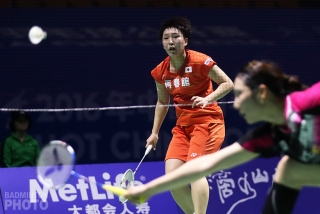
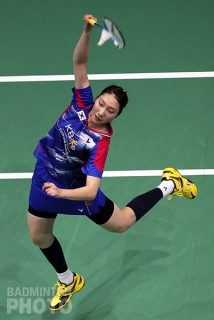
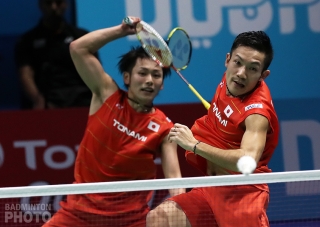
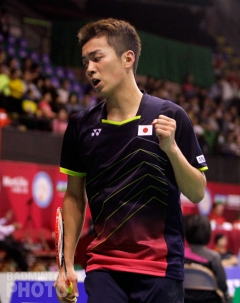

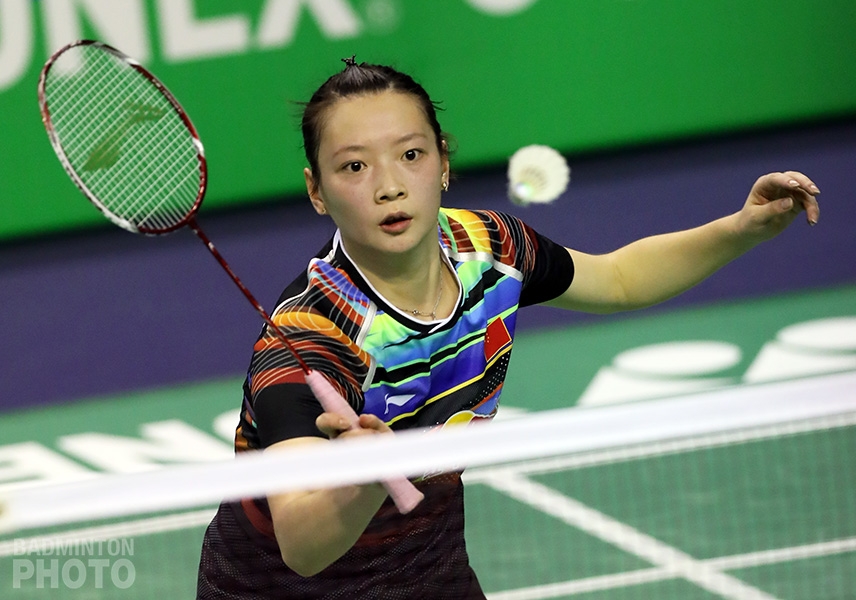
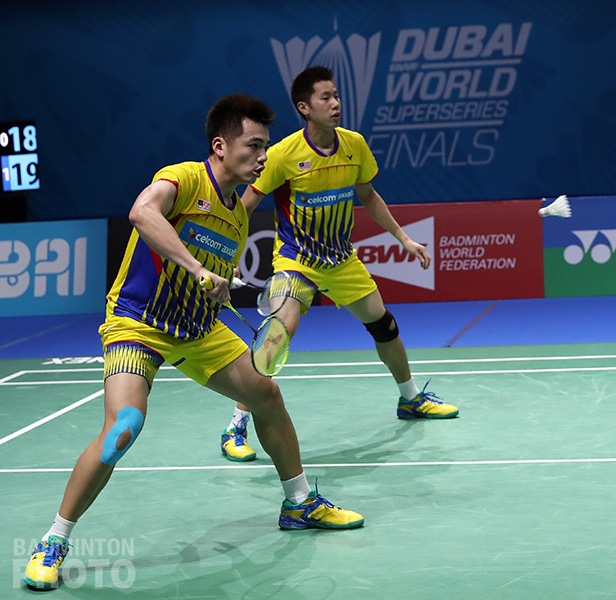
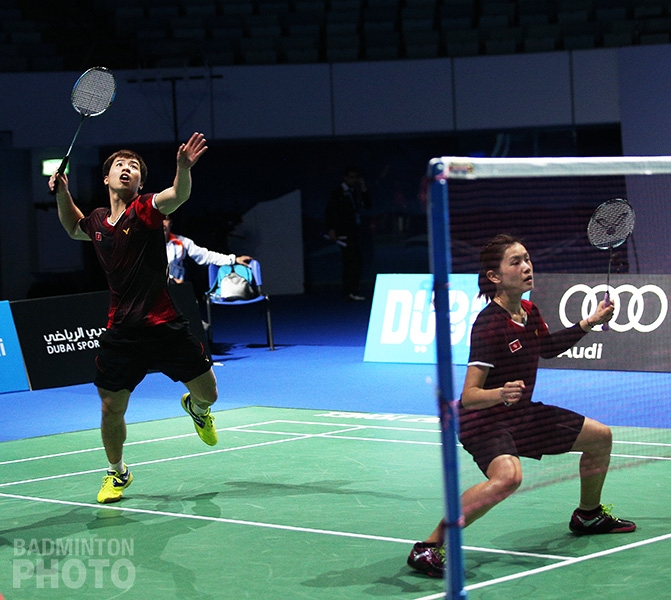
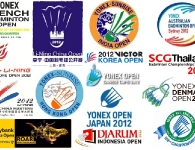

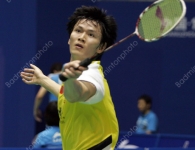
Leave a Reply